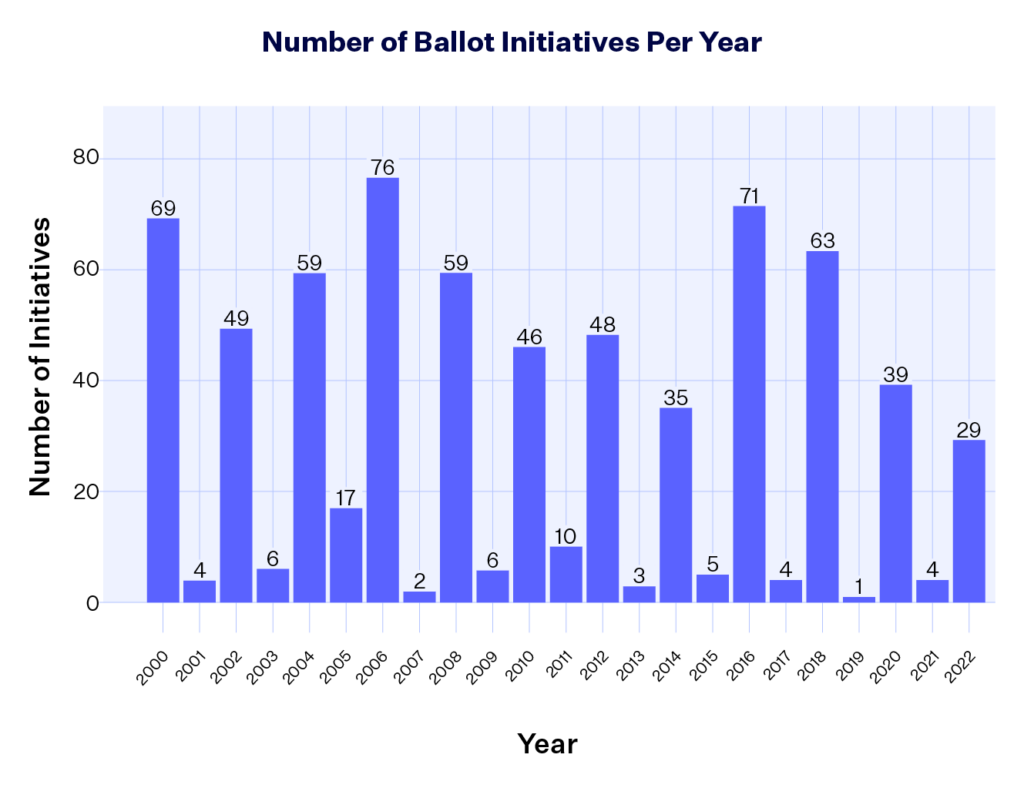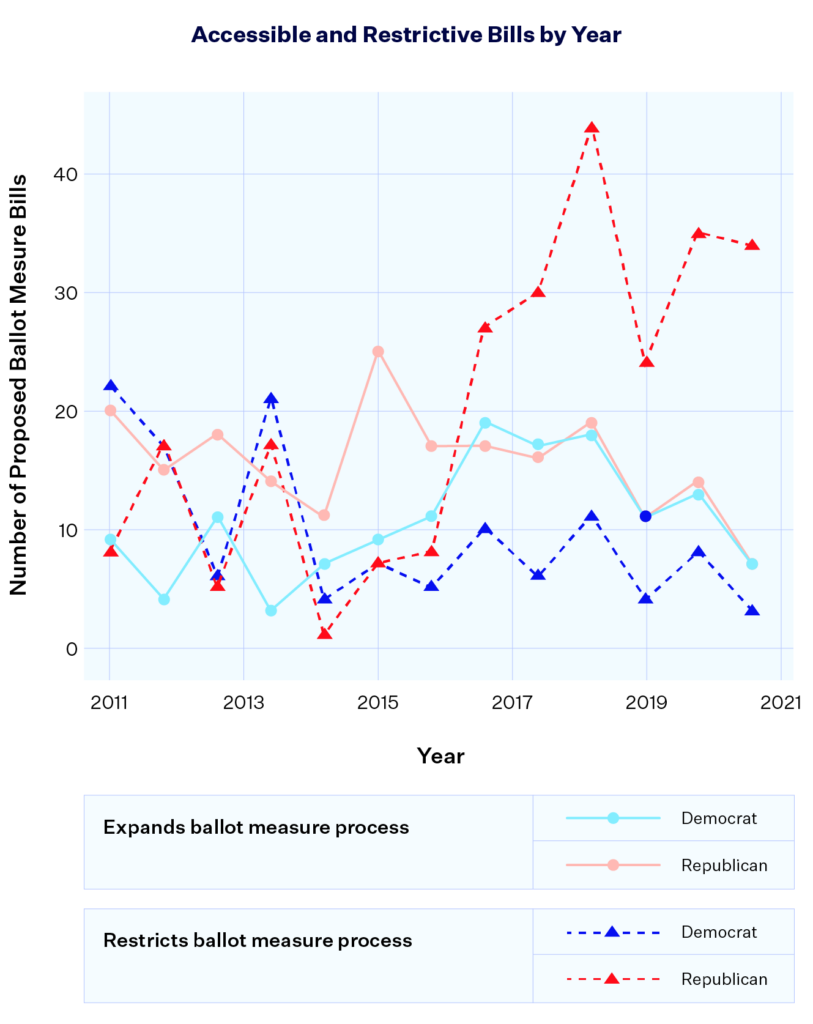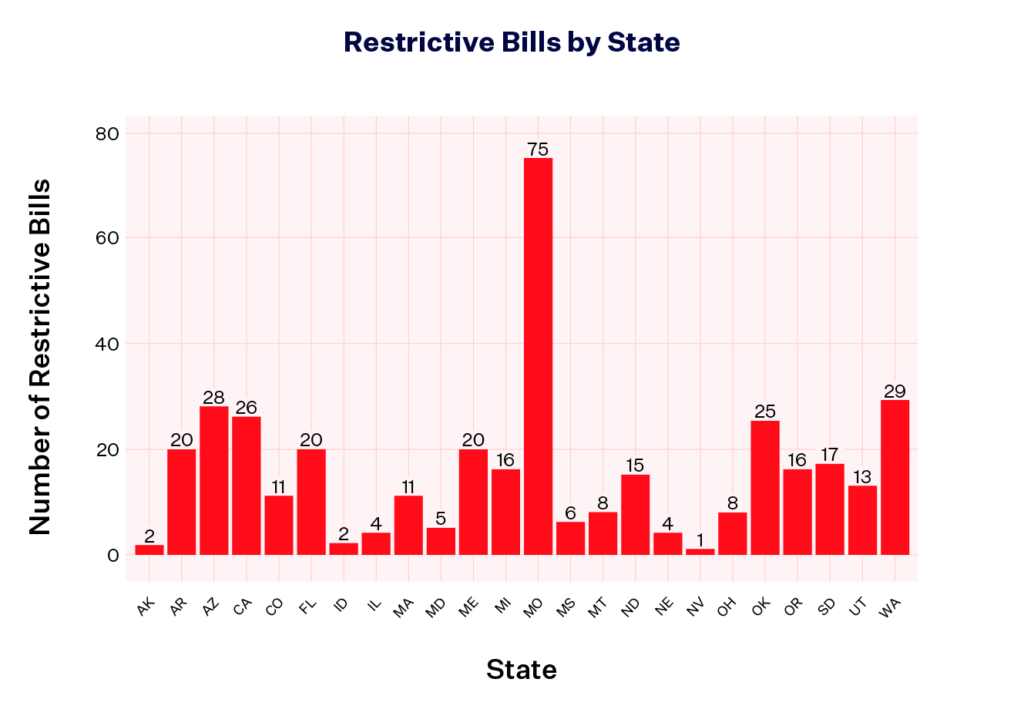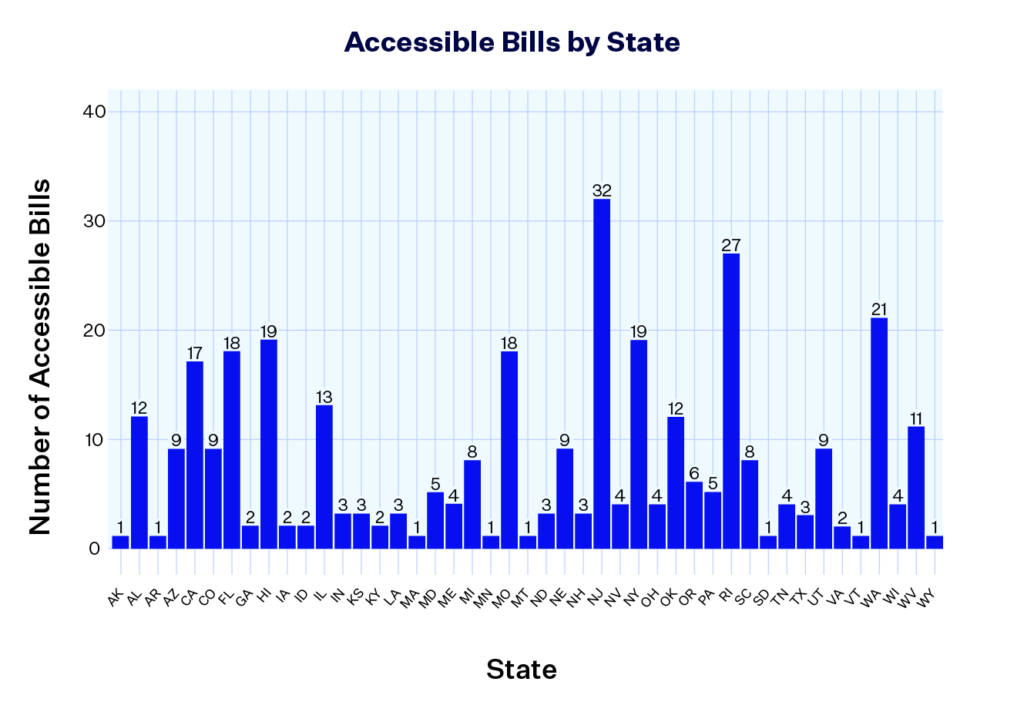The Ballot Measure Wars

In the United States, the power of ballot measures was born during the 1900s Progressive Era, ushered in by populists, socialists and labor activists. Early on, activists used measures to curb political corruption, improve labor conditions, minimize the influence of wealthy special interests and require powerful corporate interests to pay more taxes. And, although the ballot measure process has been used by conservatives and progressives alike, the legacy of direct democracy as a vehicle for progressive change is undeniable.
However, in recent years, Republican legislators have grown increasingly hostile towards ballot measures. From making it harder to pass measures to refusing to implement measures approved by voters, Republicans lawmakers have been working to restrict voters’ ability to affect change at the ballot box. In particular, during the last decade, Republican state legislators have begun to deploy creative new strategies to delay measures from making it to the ballot or to stop voters from approving progressive measures altogether.
To fully understand how the measure process has been manipulated in recent years, we examined how legislators have tried to change the process. To do this, we reviewed 12,701 bills related to the ballot measure process, introduced between 2010 and 2022, and conducted empirical tests to determine the relationship between political party affiliation and the restrictiveness of proposed ballot measure legislation.

Of those 12,701 bills, in this new and exclusive analysis, we found that 718 bills made the ballot measure process more restrictive or more accessible. Of these bills, 377 attacked the ballot measure process, while 341 of those bills strengthened the ballot measure process; the remainder were not relevant for the purpose of this analysis. We also analyzed how the patterns of ballot measure legislation are affected in states where the state government is under unified and split control.
In our analysis of ballot measure legislation, we find striking differences in the patterns of bills introduced based both on party affiliation and on time. We also found that Democrats initially attempted to restrict the ballot measure process during the 2010s, coinciding with times when Republicans successfully used the measure to restrict civil and human rights.

Throughout the decade, Republicans used ballot measures as a tool for policy change. During this period, voters approved other conservative efforts including anti-union, voter ID and anti-health care measures. In 2010 alone, voters approved several anti-union measures (in Arizona, Louisiana, South Carolina and Utah) and anti-health care measures (in Arizona and Oklahoma), while rejecting pro-marijuana related measures in Arizona, California, Oregon and South Dakota.
Republican candidates performed well across the country in 2010, solidifying power in state legislatures and governors’ mansions. These victories enabled Republican legislators and governors in many states to enact policy through their own legislatures, bypassing voters and forecasting the seismic conservative strategy shift.
In response to sweeping Republican victories, progressives sought, and won, significant progressive change through ballot measures. In particular, progressives focused on social and economic measures, typically centering on policies popular with voters, such as minimum wage increases, marijuana legalization, same-sex marriage rights and Medicaid expansion.
In 2012, Colorado and Washington voters approved initiatives legalizing the possession and use of marijuana; Maine, Maryland and Washington voters approved same-sex marriage and Minnesota voters rejected an anti-same-sex marriage ban. These 2012 victories spurred further progressive victories in 2014, including the legalization of recreational marijuana use in Alaska, Oregon and Washington, D.C. and minimum wage increases in Alaska, Arkansas, Illinois, Nebraska and South Dakota.
In 2016, 2018 and 2020, progressives again saw even more significant victories across the country, on medical and recreational marijuana, Medicaid expansion and minimum wage increases. In 2018, voters in Idaho, Nebraska and Utah expanded Medicaid via ballot measure and, in 2020, Missouri and Oklahoma also approved Medicaid expansion measures. In 2018 and 2020, Arizona, Michigan, Montana, New Jersey, Oklahoma, South Dakota and Utah took steps to legalize (or fully legalized) recreational marijuana.
With these progressive wins during the 2010s, Republicans — and particularly when Republicans held a trifecta in state government — attempted to restrict the ballot measure process far more extensively than any prior Democratic efforts.

The restrictive bills were concentrated in several states, including Arizona, Florida, Missouri, Oregon and Washington.
We found that legislators attempted to restrict the ballot measure process in several ways. In particular, signature requirements, petition circulator rules, agency process and election process issues were the most common ways in which legislators attempted to limit the ballot measure process.

In practice, our analysis demonstrates three significant conclusions. First, Democrats were willing to restrict the ballot measure process to prevent conservative use of ballot measures to take away rights like same-sex marriage.
Second, Republican attempts to restrict the ballot measure process far outpace any initial attempts by Democrats during the period we studied, particularly when Republicans have a trifecta in state government. This speaks to the long-term Republican strategy of power-grabbing seen not only here, but throughout the political process in recent years.
Lastly, as ballot measures continue to be a critical driver of progressive change, the patterns in our research show that Republicans will continue to attempt to restrict the ballot measure process. Progressives need to fight to keep the process available for generations to come. This means electing legislators who support making the ballot measure process more accessible and lobbying legislators to ensure they are not making the process more restrictive. Progressives can also enact ballot measures that make the process stronger, including limiting legislatures’ ability to change ballot measures and broadening the ballot measure process.
Kentiya Orange is a progressive attorney and an expert on ballot measures.
Carrie Olson-Manning is an assistant professor at Augustana University.
Emma O. Sharkey is an attorney at Elias Law Group, where she works for progressive PACs and organizations and ballot measure efforts.
The views expressed here are their own.